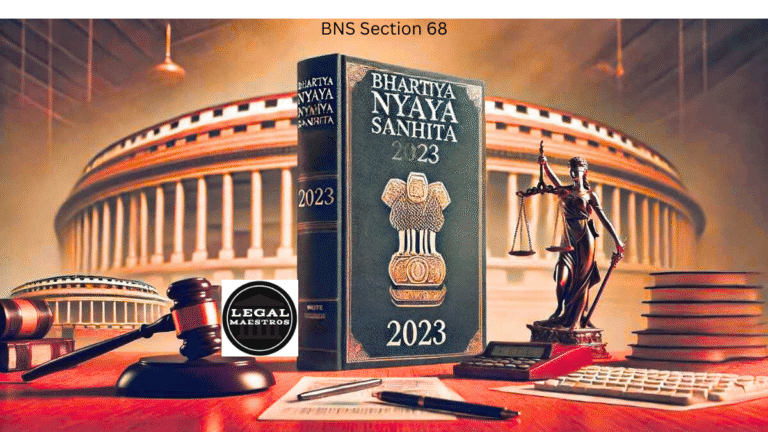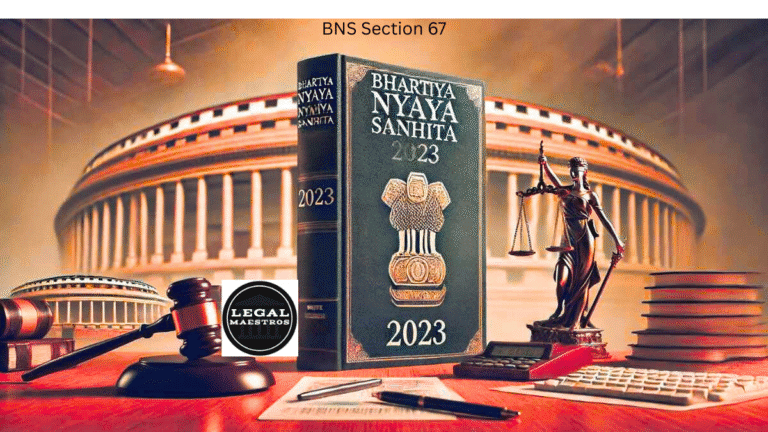
Understanding Section 29 of the Bharatiya Nyaya Sanhita, 2023: Consent and Independent Offences
The Starting Point
The Indian Penal Code (IPC) was superseded by the Bharatiya Nyaya Sanhita (BNS) 2023, which includes a number of provisions that aim to modernize and clarify the country’s criminal law. A provision that addresses the restrictions of permission in criminal activities is Section 29, which is one example of such a provision. It is emphasized in this section that certain actions continue to be considered criminal offenses regardless of whether or not the person who is affected consents to them.
The Fundamental Idea That Guides Section 29
According to Section 29 of the BNS, the exclusions that are mentioned in Sections 25, 26, and 27 do not apply to activities that are offenses regardless of any harm that they may cause or be intended to cause to the person giving consent or on whose behalf the consent is provided. This provision is included in the BNS. Even if an individual gives their agreement to a certain conduct, if that act is fundamentally unlawful, the consent does not exonerate the perpetrator of legal culpability. To put it another way, the consent does not absolve their responsibility.
This clause emphasizes the concept that certain actions are considered to be offenses not because of the harm that they inflict to a particular individual, but rather because they are regarded as destructive to society as a whole or because they contradict fundamental legal principles.
For any queries or to publish an article or post or advertisement on our platform, do call at +91 6377460764 or email us at contact@legalmaestros.com.
The Cause of a Miscarriage as an Illustrative Example
A clarification of this topic is offered by an illustration that is included in Section 29. According to the BNS, it is regarded a criminal violation to cause a miscarriage, unless the act is carried out in good faith with the intention of saving the life of the woman. Even in the event that a woman gives her agreement to the miscarriage or her guardian gives consent on her behalf, the conduct is still considered a criminal violation if it does not satisfy the exceptional circumstances. This demonstrates that permission does not give legitimacy to actions that are intrinsically illegal. The following sources:
For More Updates & Regular Notes Join Our Whats App Group (https://chat.whatsapp.com/DkucckgAEJbCtXwXr2yIt0) and Telegram Group ( https://t.me/legalmaestroeducators )
Similarities and differences with Sections 25, 26, and 27
Sections 25, 26, and 27 of the BNS give exceptions to criminal responsibility in certain situations that involve consent and good faith. These exceptions are available to individuals.
In accordance with Section 25, an act that is not intended or known to be likely to cause death or grave damage is not considered an infraction if it is carried out with the permission of the individual who is affected by it.
It is possible for this exception to be extended to include actions that are carried out in good faith for the benefit of the person, even if such actions result in injury, provided that the person has given their consent.
With the permission of a guardian, acts that are carried out in good faith for the benefit of a child or a person with mental illness are considered to be under the purview of Section 27.
Section 29, on the other hand, makes it quite clear that these exclusions do not apply to actions that are violations in and of themselves, regardless of the harm that was inflicted or the permission that was provided.
The Legal Consequences of This
There will be major legal repercussions as a result of the insertion of Section 29 in the BNS. The notion that certain activities cannot be justified by agreement is reaffirmed by this. This is because certain actions are regarded offenses due to the fundamental nature of the actions themselves. Because of this clause, it is impossible for anyone to avoid legal responsibility by getting agreement for conduct that are legally considered to be criminal in nature.
For instance, even if a person gives their consent to a euthanasia act, the person who actually performs the act may still be held criminally accountable for the conduct. This is because, according to Indian law, euthanasia is considered an infraction regardless of whether or not the individual gives their consent.
Another Perspective on Society
The purpose of Section 29 is to prevent persons from being exploited or harmed, even in circumstances in which they may have given their permission to specific conduct. This is significant from a society perspective. Because it recognizes that consent can sometimes be granted under duress, ignorance, or a lack of understanding, it accepts that consent cannot always be deemed a valid defense.
In addition, this provision symbolizes the responsibility of the state to defend moral and legal principles that protect the well-being of its residents, even in the face of decisions that could potentially be damaging to them.
According to the Bharatiya Nyaya Sanhita, 2023, Section 29 is an extremely important component in the process of defining the limits of consent in the context of criminal law. This protects the integrity of legal and moral standards within society by establishing that some behaviors continue to be considered offenses regardless of whether or not permission is consented to. This section ensures that individuals are safeguarded against behaviors that are intrinsically destructive, thereby reaffirming the notion that certain transgressions are too serious to be reduced by personal consent.








